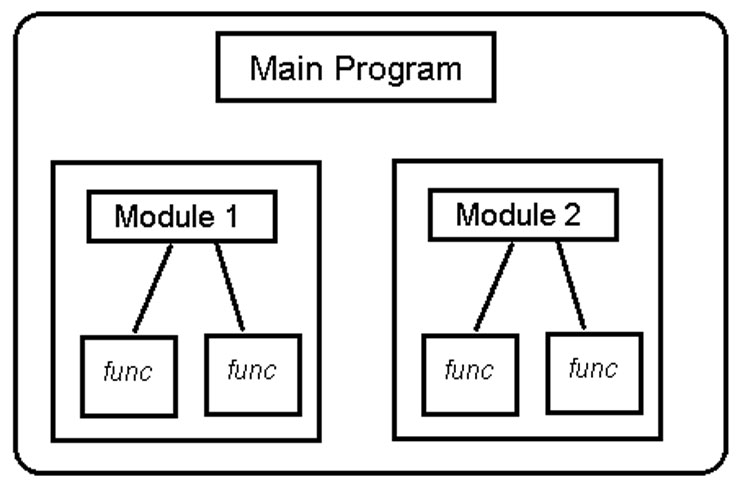
A major concern of software development using traditional procedural techniques is when it comes to big projects where complexities surround the large software project to be designed. In such projects that involves tens of thousands of lines of code, having a clear knowledge of what a segment of code does becomes more difficult.
To overcome the problem of a mix-up and the repeat of similar code in different stages of the program, modularity was designed to have codes designed in segments to do a specific function that can be referenced from any part of the program. Similar functions are put into a module. Since the modules are independent, the complete software is a collection of functional units or sub-programs to make the complete program.
What Modular Programming Does
Modularity in programming simply encourages the separation of the functionality in a program into distinct and independent units such that every unit has everything required for it to execute just that aspect of the program. The elements in the interface of a module can be detected in other modules of the program. Modular programming today deals with high-level decomposition of an entire program’s code into functional and independent units.

The Importance Of Modular Programming
Ability To Reuse Code
Modularity enables programmers to use the same code in the module over and over again by simply referencing the code to perform the specific action in the module at different locations of the program. Creating units or classes ensures this.
Easy Debugging

A program with millions of lines of code will present a huge task if not in a module when debugging is required. You can imagine what it is like to search through such a huge environment to look for errors in a program. Having each task in its discrete module makes the process a lot easier to carry out. A faulty function can easily be checked for errors when in a module.
Simplicity And Ease Of Maintenance

With modularity, the number of lines of codes should be reduced. Apart from handling the repetition of similar codes, modularity simplifies the whole process of developing a large project by having different programmers work on various aspects of the project.
Organization
Modularization makes reading a program a lot better to do and understand. This makes the programmer better organized in his coding which helps when referencing. This also makes other programmers who may want to go through the workings of the module find it much easier to read. Modularity thus improves readability through a well-organized design.
Modularity In Programming Encourages Teamwork And Collaboration
Modular design in a program development improves collaborative efforts from different programmers. This builds the teamwork spirit that is required to complete a major project that requires thousands of lines of codes.
Modularity Is Reliable
With all features of simplicity, ease of debugging, organization and other important factors, modularity can be described in one word, a ‘reliable’ technique to apply when dealing with software development




